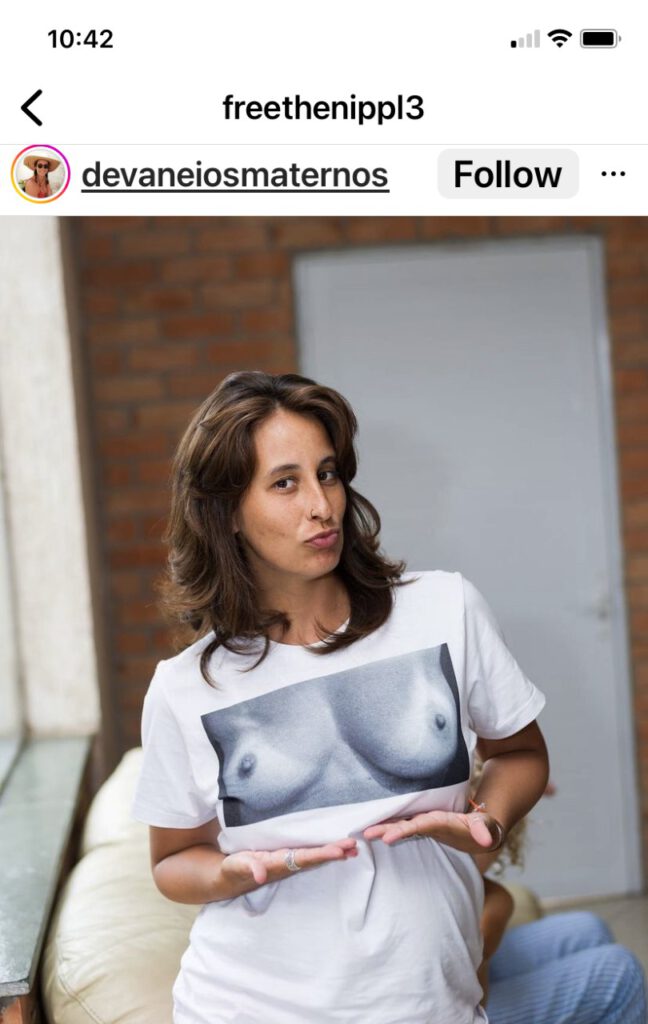#FreeTheNipple on Instagram and Facebook has been a movement that continues to grow in popularity. The rule on both platforms can be restrictive and confusing, especially when it comes to the female nipple.
Facebook and Instagram’s rules have been more of a moving target and at times the platforms have been accused of being arbitrary, with exceptions made in some instances and less reinforcement in others. For example, if a woman shares a completely nude painting of herself, it’s considered okay, but it is not okay to show the reference photo, no matter how “artistic.” When it comes to women, the rules have always been more strictly censored and, to-date, are still very prohibitive.
Recently Meta‘s Oversight Board — a group of academics, lawyers, and rights experts — have recommended the company update its rules around adult nudity to “respect international human rights standards.”
The Oversight Board operates independently of Meta but is funded by the company, advising them on content moderation. In the statement, it said, “The restrictions and exceptions to the rules on female nipples are extensive and confusing,” and even more confusing when it comes to transgender and non-binary people. Examples included posts about breast cancer awareness, childbirth, top surgery, and protests.
Jan. 17, in a statement released by the board, they recommended an overhaul of Meta’s Adult Nudity and Sexual Activity Community Standard, advising the company put forth “clear, objective, rights-respecting criteria” regarding its policies in this area, “without discrimination on the basis of sex or gender.”
The decision was made after the board examined two posts from an account belonging to a non-binary and transgender couple.
The posts — the first of which was shared in 2021 and the other in 2022 — displayed the couple topless but with their nipples covered. The post featured a discussion about transgender healthcare and gender-affirming surgery. These posts were flagged by users and later removed for violating the company’s Sexual Solicitation Community Standard.
Instagram restored the posts after the couple appealed, and after investigating, the board overturned Meta’s original decision, stating that both cases “highlight fundamental issues with Meta’s policies”.
The board’s findings are what most people already know about both social media platforms: Meta’s policies on adult nudity result in greater barriers to expression for women, trans, and gender non-binary people on its platforms.
Then there’s the growing argument that a nipple, whether male or female, looks the same; the issue is the “packaging around the nipple.”
The Instagram account @genderless_nipples is using closeup images of nipples to test the photo-sharing app’s notoriously strict policy on female nudity. @genderless_nipples publishes user-submitted photos of both male and female nipples, drawing attention to what many see as a clear double standard in Instagram’s moderation policy.

“Men are allowed to show their nipples, women’s get banned,” the account’s bio reads. “Support ALL genders! Let’s change this policy!”
In 2020, Instagram altered its nudity policy after backlash against its censorship of plus-size Black women on the platform. After a campaign from activist Nyome Nicholas-Williams, the policy change allowed for breast hugging, cupping, and holding to be shown in posts. In 2021, the Oversight Board updated nudity policies on Facebook, allowing for some nuance and permitting “health-related nudity”.
The argument of “pornography” being exposed to children on both platforms is quickly rebuked by the massive amount of porn that is a few clicks away on any device and the constant conversation about simply monitoring what your kids look at on their devices.
For now, the new rules could mean the #Freethenipple movement may a thing of the past.










